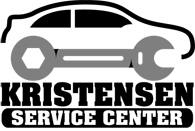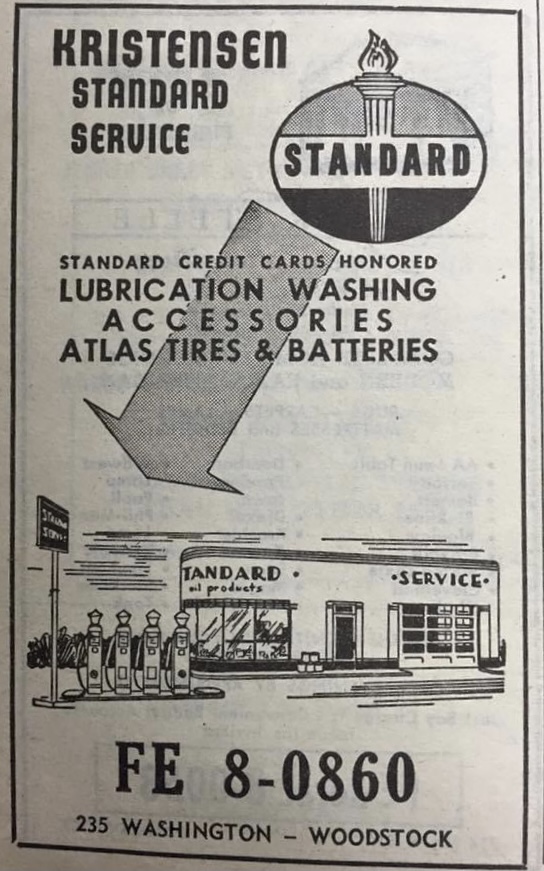We haven’t quite hit the high temperatures we are expecting this summer in Woodstock, IL. Air conditioning is probably the number one item that people keep a watch on, but as this article reminds us, many systems in your vehicle get stressed when the thermometer peaks:
Summer can be tough on cars, especially during high temperatures when heat can destroy batteries and stress the cooling system and tires. As a precaution, these vehicle components should be checked periodically during summer to help avoid breakdowns and car problems, according to the Car Care Council.
Excessive heat and overcharging shorten the life of a battery. Heat causes battery fluid to evaporate, which then damages the internal structure of the battery. A malfunctioning component in the charging system, usually the voltage regulator, allows too high a charging rate, which will eventually destroy a battery.To get the most life out of a battery, the council recommends having the electrical system checked to make sure it is charging at the correct rate. If your car’s battery is the type that needs to be topped off, check it often, especially in hot weather and add distilled water if necessary. Keep the top of the battery clean. Dirt can become a conductor, which drains battery power. If corrosion accumulates on battery terminals, it becomes an insulator and inhibits the current flow.
The cooling system also works harder during hot temperatures to prevent overheating of the engine. To keep the cooling system working effectively, the coolant and distilled water mixture for a vehicle’s radiator should be 50:50. As a reminder, never open a hot radiator cap when checking the coolant level in the reservoir.As a rule of thumb, the coolant should be changed annually on most vehicles. This will keep the cooling system fresh and clean inside, which helps prevent corrosion and assures that the coolant has the proper boiling point and protection. A pressure test, thermostat test, a cooling fan test and a visual inspection for leaks and corrosion should also be done annually. Hoses and drive belts should be checked for cracks, bulges or frayed edges.The radiator should be kept clean by periodically using a garden hose and a soft brush to carefully remove bugs, dirt and debris.
Tires also need special care in warmer weather as high temperatures put added stress on them. To maximize tire life and safety, check the tire condition and inflation pressure monthly, and have the tires rotated every 6,000 miles. Summer heat will cause the pressure within a tire to rise, therefore, it’s important to check the pressure when tires are cold. The owner’s manual includes the recommended air pressure for your vehicle’s tires.
“It takes very little time and money to make sure your car runs properly during summer, and although breakdowns happen, they can definitely be minimized by taking a few extra preventive maintenance steps,” said Rich White, executive director, Car Care Council.
The council reminds motorists that the vehicle’s exterior also can be damaged by sunlight, UV radiation, acid rain, salt, dirt and air pollution. To protect the paint and finish, vehicles should be washed weekly and waxed every six months.
To schedule a check up for your car, call Kristensen’s at (815) 338-0860 today.
Source: Car Care News Service
Have you ever been witness to Bob’s “crystal ball” joke? Yes, it is incredibly corny but also…very applicable at times. It often rears its cheesy presence when people ask him to speculate on what could possibly be causing the illuminated check engine light. In Woodstock, IL, there is probably no man who has been mistaken for a psychic more than Bob.
The answer to the question of what the check engine light signals is simply this: don’t ignore it, don’t speculate on it. Find out, according this article:
One of the most vital signals of an improperly functioning vehicle is the check engine light and when illuminated, it alerts the driver to a variety of existing potential problems. Vehicle check-ups during community car care events throughout the country reveal that the check engine light is on in nearly one out of ten vehicles, says the Car Care Council.
“When the check engine light comes on, it means that a vehicle system, such as the ignition, fuel injection or emission control, is not operating properly, even if the vehicle appears to be running normally,” said Rich White, executive director, Car Care Council. “A glowing check engine light doesn’t mean you have to immediately pull the car to the side of the road, but it does mean you should get the car checked out as soon as possible. Ignoring the warning light could result in costly repairs. At the very least, the light could alert you to an engine problem that is negatively impacting fuel economy.”
Some common malfunctions that can cause the check engine light to illuminate include a faulty oxygen sensor, mass air flow sensor, or spark plugs and wires. If the light flashes, the condition is more critical and must be checked immediately to prevent severe damage, which may include catalytic converter damage.
When scheduling service, make sure the automotive shop that examines your vehicle has professional technicians who are trained and certified in OBDII diagnosis and repair. The technician will connect your vehicle’s computer system to a diagnostic scan tool, which will provide trouble codes indicating why the check engine light was activated.
While the diagnostic tool is connected, the technician can analyze data streams such as the idle speed, throttle response, engine temperature, fuel system pressure, manifold vacuum, exhaust emission levels and many other key indicators. Once the problem is fixed, the car’s computer is reset to initiate the computer’s release process. The technician should then advise the customer of the proper course of action, potential warranty coverage, further testing if necessary and recommended repairs.
We won’t charge you for plugging in our professional computer to read your codes as long as you keep the care of your problem with us. Call Kristensen’s at (815) 338-0860 to finally figure out what that check engine light is all about.
Source: Car Care News Service
The trend of keeping ownership of your car longer is continuing, even as the economy continues to improve in McHenry County and our town of Woodstock, IL. Oil changes at regular intervals can help keep your car on the road longer, as we know from experience and are reminded in this article:
Dust, dirt and grime are all enemies to the longevity and efficient performance of your vehicle’s engine. To prevent engine damage, your vehicle is equipped with various filters – air and oil among them.
“Changing filters at factory-recommended intervals helps your vehicle last longer and perform better immediately and well into the future,” says Kevin O’Dowd, Director of Marketing & Communications at MANN+HUMEL Purolator Filters NA LLC. Purolator, which invented the automotive oil filter in 1923, is a leading supplier of high quality automotive filters to the North American aftermarket.
Oil Filter – Of all automotive filters, probably the best known is the oil filter. Most drivers know that a regular oil and filter change should top their vehicle’s list of maintenance items.
According to O’Dowd, “Dirt in oil poses great risks. Modern engines are manufactured to precise tolerances and operate under high stress. As the engine turns, the oil pump circulates oil throughout the engine to ensure all components function smoothly, with minimal friction. Dirt particles in the oil can ‘score’ or scratch the surfaces of engine components, eventually requiring engine overhaul or replacement. And while some oils have additives that extend their service life, they don’t do anything to rid the engine of grit and contaminants. Only regular oil and filter changes can do that.”
Air Filter – Just as with oil filters, the media in air filters is specially engineered to trap airborne contaminants that can enter and harm the engine. Clogged or inferior air filters can allow dirt and dust particles in the air to get trapped between the piston rings and cylinder walls resulting in excessive oil consumption and reduced efficiency and power.
Furthermore, a vehicle’s engine operates by taking in 9 -10,000 gallons of air for each gallon of fuel it consumes. The smooth flow and cleanliness of this air determines how well the engine performs or how quickly it wears out. A clogged air filter increases fuel consumption and compromises performance. According to the U.S. Department of Energy, replacing a clogged air filter not only protects against engine damage but also improves gas mileage by as much as 10 percent.
You can always schedule your oil change by calling (815) 338-0860. We also provide oil changes while you wait. Stop by Kristensen’s today!
Source: Car Care News Service
There doesn’t seem to be a day that goes by without me finding myself in a road work zone. It’s inevitable in this area; after all, we only have a finite window of great weather to keep everything maintained. And every day I’m in those construction zones, I’m reminded of the toll that this can take on our modes of transportation. So to avoid costly auto repair in Woodstock, IL and McHenry County this summer, consider these helpful tips from our friends at the Car Care News Service:
Summer is the main season for road construction, which means there’s a good chance you’ll hit a bump or two, or come across loose stones and other hazards associated with construction zones. These road conditions can be tough on a vehicle’s steering and suspension systems and can throw out the alignment, while loose stones have the potential to damage the vehicle’s exterior or windshield, according to the Car Care Council.
The symptoms of steering and suspension or wheel alignment problems are uneven tire wear, pulling to one side, noise and vibration while cornering or loss of control. The main parts of the systems are shocks and/or struts, the steering knuckle, ball joints, the steering rack/box, bearings, seals or hub units, and tie rod ends.
The council recommends that motorists have their vehicles checked out immediately if any of these symptoms exist, as steering and suspension systems are key safety-related components and largely determine the car’s ride and handling. Regardless of road conditions, these systems should be checked annually and a wheel alignment should be performed at the same time.
Motorists also should do frequent visual checks of their vehicle’s exterior and windshield to identify any chips, dings or cracks. These are small problems that can become costly repairs and safety hazards if they aren’t taken care of immediately.
“Even the most careful driver, who is traveling slowly and carefully through a work zone, can hit an unexpected bump or other road hazards,” said Rich White, executive director, Car Care Council. “The key is to pay attention to your car and if you think there’s a problem, have it taken care of as soon as possible.”


